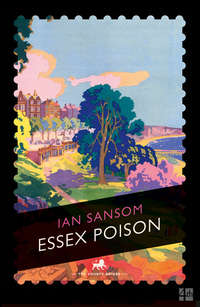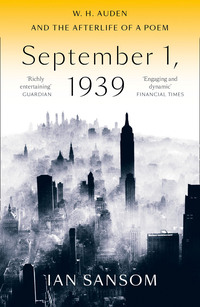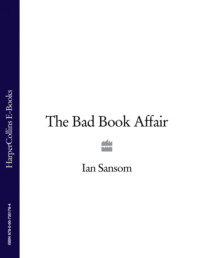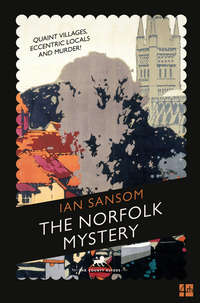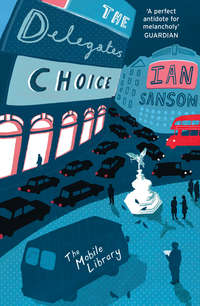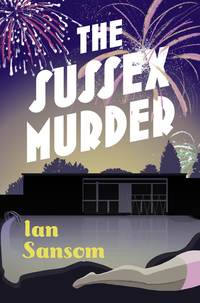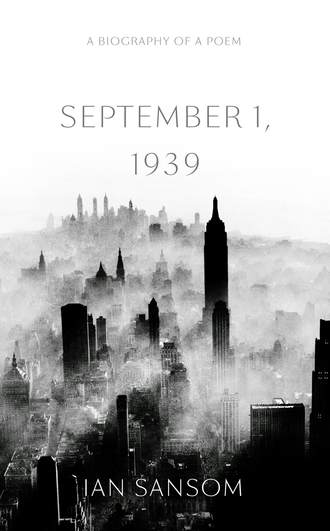
Полная версия
September 1, 1939: A Biography of a Poem
*
On the long Greyhound bus journey back to New York on Tuesday, 29 August, Auden wrote to a friend in England, ‘There is a radio on this coach, so that every hour or so, one has a violent pain in one’s stomach as the news comes on. By the time you get this, I suppose, we shall know one way or the other …’
In fact, people knew already: everybody knew already.
*
In his novel Coming up for Air, published in June 1939, George Orwell has his narrator remark:
I can see the war that’s coming […] There are millions of others like me. Ordinary chaps that I meet everywhere, chaps I run across in pubs, bus drivers and travelling salesmen for hardware firms, have got a feeling that the world’s gone wrong. They can feel things cracking and collapsing under their feet.
Auden may have been enjoying his holiday in the sun, but things had been cracking and collapsing for some time.
*
‘Europe’, writes Antony Beevor in his panoramic history The Second World War (2012), ‘did not stumble into war on 1 September 1939.’ She had been walking steadily towards it for years. In The Shape of Things to Come, published in 1933, H. G. Wells had predicted a total war by 1940: ‘The tension had risen to a point at which disaster seemed like relief and Europe was free to tear itself to fragments.’
The fragmentation had not begun months or years before: it had begun decades before.
*
A. J. P. Taylor, in his account in The Origins of the Second World War (1961), claimed that a second world war ‘had been implicit since the moment when the first war ended’: it became explicit at exactly 4.30 a.m. on 1 September 1939, when the German panzer divisions which had been gathering on the Polish border began their advance, and the first air raids began. By the time the Soviets invaded northern China in September 1945 – the last campaign of the Second World War – almost 50 million people throughout the world had died, more than half of them civilians; approximately 1000 deaths per hour, every hour, for six years.
*
1 September 1939 inaugurated an entirely new kind of war. World War I had been fought by infantrymen moving slowly, heroically and predictably into battlefields prepared for war: ‘They fell with their faces to the foe’, in the words of Laurence Binyon’s famous poem ‘For the Fallen’. But on 1 September, Hitler unleashed ‘blitzkrieg’ – lightning war, impersonal war, war that was intended to lead to Vernichtungsschlacht, annihilation. First came the air attacks and bombing raids, then the motorised infantry and the tanks, followed by the SS Death’s Head regiments who conducted what were euphemistically referred to as ‘police and security’ measures to ensure what Himmler called the ‘radical suppression of the incipient Polish insurrection in the newly occupied parts of Upper Silesia’. Within a week, Cracow, with a population of a quarter of a million, was under German control. Twenty-four thousand SS troops had moved into Poland, by train, by plane and on foot; the massacres of civilians began. Villages and towns were set alight. There were public executions.
*
The front-page headline of the New York Times on Friday, 1 September 1939 tapped it all out in telegraphese: ‘GERMAN ARMY ATTACKS POLAND; CITIES BOMBED, PORT BLOCKADED; DANZIG IS ACCEPTED INTO REICH’. With their trochaic-patterned strong-stressed syllables, one might almost rearrange the lines into verse:
German army attacks Poland;
Cities bombed, port blockaded;
Danzig is accepted into Reich.
The lead column then begins with the words ‘BRITISH MOBILIZING’.
Indeed they were – and had been for some time.
*
In England, ever since the Munich Agreement of September 1938, trenches had been dug, air-raid shelters constructed and barrage balloons floated above London. The pictures from the National Gallery had been packed up and sent off to Wales. Most of the British Museum’s treasures were safely stored in an underground tunnel in Aberystwyth. Rationing was being planned.
*
And meanwhile, back in America … what exactly was Auden up to?
We know roughly what he was up to.
*
On 12 June 2013, the British Library acquired an Auden manuscript at Christie’s in London for £47,475. It was Auden’s diary for August and November 1939, written in a ‘National’ notebook, made in the USA, ‘this book contains eye-ease paper, “Easy on the Eyes”.’ The diary is incorrectly dated, by Auden, ‘August 1938’. The entry for 1 September begins ‘Woke with a headache after a night of bad dreams in which C [Chester Kallman] was unfaithful. Paper reports German attack on Poland.’ There follow several pages of notes on scientific and political subjects – beginning with ‘Good News,’ [underlined]. ‘A scanning microscope has been invented.’
(‘A scanning microscope’ is another way of describing a poem.)
*
At 9.30 p.m. on 1 September, the British government issued an ultimatum to the Nazis to withdraw from Poland.
At 9 a.m. on 3 September, a second ultimatum was issued to the German Foreign Office in Berlin: Sir Nevile Henderson, the British Ambassador, read out the ultimatum to a deserted room.
And then finally, at 11.15 a.m. on 3 September, the British prime minister, Neville Chamberlain, broadcast to the nation on the BBC. The country, he announced, was at war:
This morning the British Ambassador in Berlin handed the German Government a final note stating that, unless we heard from them by eleven o’clock that they were prepared at once to withdraw their troops from Poland, a state of war would exist between us. I have to tell you now that no such undertaking has been received, and that consequently this country is at war with Germany.
Also on 3 September, the American president, Franklin Roosevelt, made his own radio broadcast, of a very different kind: ‘Let no man or woman thoughtlessly or falsely talk of America sending its armies to European fields. At this moment there is being prepared a proclamation of American neutrality.’ There would be, Roosevelt promised, ‘no blackout of peace in the United States’.
(The proclamation, the American neutrality, the promise of no blackout of peace: Roosevelt’s words seem to echo in the words of Auden’s poem, which indeed contains a ‘proclaim’, a ‘neutral’ and the famous ironic points of light. How many poems, one wonders, are plucked from the ether, and how many from the airwaves? Poets are like thieves and spies; they’re always listening in. It’s like that film The Lives of Others, the one about the spy in East Germany, eavesdropping with his headphones on. Poems are the words of others – the words of us all. There’s a poem by Denise Riley, ‘Lure, 1963’, for example, which is composed of snatches of half-remembered pop lyrics – ‘The Great Pretender’ by The Platters, ‘The Wanderer’ by Dion, ‘It’s in His Kiss’ by Betty Everett. One of the truly great works of literary criticism, John Livingston Lowes’s The Road to Xanadu: A Study in the Ways of the Imagination, a study of the work of Coleridge, basically consists of Lowes eavesdropping on Coleridge’s eavesdroppings, tracing every image to its source in Coleridge’s reading. As a model, Lowes is probably best avoided: the book is pretty much unreadable; The Road to Xanadu contains too many detours.)
*
(‘Does your book have an argument?’ asks my editor. ‘It’s more a series of detours,’ I say. ‘And cul-de-sacs. And dead ends. And stoppings-short.’ ‘Like a journey?’ ‘Sort of like a journey.’ This is not a journey. And I am no John Livingston Lowes. This is either the beginning of the preparations for a journey, or the aftermath.)
*
In London, in the days leading up to 1 September, according to The Times, things were ‘largely normal’:
London at this time of tension has retained its usual appearance to a remarkable extent, but there are differences which the continuing crisis has made unavoidable. In the streets one of the most obvious is the banking of sandbags which now shields many buildings. Londoners are carrying on much the same as usual, except that every one is contributing something towards ensuring complete preparedness for any emergency. No worried casualties in a war of nerves are to be seen; the population remain calm, hopeful, and resolute.
(‘London Largely Normal: Calm in Time of Tension, Defence Activities’, The Times, Thursday, 31 August 1939)
Calm, hopeful, resolute? Maybe it was. I don’t know.
My family were all Londoners. I wish I could have asked them what it was like, but they had things to do. They were busy.
*
On 1 September 1939, my father was busy being evacuated:
The Government decision that evacuation should begin to-day as a precaution was made known yesterday in the following announcement by the Minister of Health, Mr. Elliot, and the Secretary of State for Scotland, Mr. Colville, which was broadcast several times during the day: — It has been decided to start evacuation of the school children and other priority classes as already arranged under the Government scheme to-morrow (Friday, September 1) […] Mothers and other persons in charge of children below school age should take hand luggage with the same equipment for themselves and their children as for school children. The names of the children should be written on strong paper and sewn on to their clothes. No one can take more than a little hand luggage.
(‘Evacuation To-Day: Official Advice to Parents, “A Great National Undertaking”’, The Times, Friday, 1 September 1939)
And my grandfather – who knows? He may well have been busy with the rest of the East End, all those cheerful Cockney geezers preparing for war:
East London is prepared, and the people living in this lively, crowded, industrially important part of the capital are justifiably proud of what they have done towards completing the nation’s defences. A tour of East London yesterday was a stirring and heartening experience. At one point, not far from the docks, a piece of waste land had fallen into the hands of a big squad of willing and tireless workers, whose picks and spades were quickly supplying fillings for thousands of sandbags. Stripped to the waist, the men dug vigorously, pausing only now and then to make a fellow-worker laugh with a cheerful quip.
(‘Cheerfulness in East London: Voluntary Help, Willing and Tireless Workers’, The Times, Friday, 1 September 1939)
The whole scene sounds highly unlikely, frankly – a fantasy of the Times reporter – but on the other hand I can certainly imagine him, my grandfather, George Sansom, stripped to the waist, filling sandbags, ready with a cheerful quip. He was a boxer, a tough guy, a sweet man, and born the same year as Auden, coincidentally, 1907, though his life and Auden’s could not have been more different. When Auden was moving from prep school to boarding school, George Sansom was leaving school to go and work at Windsor and Newton paint manufacturers in east London. When Auden was going up to Oxford, George Sansom was going off to work in a factory making orange boxes. And while Auden sat out the war, safe in New York, he served in the Merchant Navy. The year Auden died, George Sansom was retiring from the Post Office, where he’d worked as a postman for most of his adult life. Auden died in Austria, where he’d bought a home on the proceeds of book sales and awards. My grandfather died in Essex, having moved from his council flat in Poplar into sheltered accommodation on a busy main road in Romford. At Auden’s funeral, they played Siegfried’s Funeral March from Tristan und Isolde. After my granddad’s funeral at the crematorium, when all the family got together to clear out the flat, I was not surprised to find that there were no books in the house, not a single one, and that he owned only the clothes he stood up in, some bed linen, a few pots and pans, and three LPs: the Massed Bands of the Royal Marines; an Elvis Christmas album; and The Best of Pavarotti. His life savings were exactly one hundred and one pounds. When Auden speaks on others’ behalf in this poem, as he so often liked to do – ‘I and the public’, ‘We must suffer them all again’, ‘our wish’, ‘We must love one another or die’ – I wonder if he thought he was speaking on behalf of people like my grandfather. If he did, my grandfather certainly would not have thanked him for it.
*
(I make no apology for bringing in these family matters here, though I’ll try not to make a habit of it. Auden’s reviews and essays are defiantly personal, of course – but that’s always been a perk of the privileged; they’re allowed to be defiantly personal, because of who they are. They’ve earned it. The rich and the famous, we assume, and they assume, are just more interesting than the rest of us. They have permission to do and say what they want. Auden begins an early review, for example, ‘If the business of a reviewer is to describe the contents of the books he reviews and to appraise their value, this is not going to be a review.’ Well, in that case: this is not going to be a book.)
Anyway, all of this is just to be clear at the outset that a lot was happening on 1 September 1939.
And a lot is happening in ‘September 1, 1939’.
1
I sit in one of the dives
On Fifty-Second Street
Uncertain and afraid
As the clever hopes expire
Of a low dishonest decade:
Waves of anger and fear
Circulate over the bright
And darkened lands of the earth,
Obsessing our private lives;
The unmentionable odour of death
Offends the September night.
I ≠ A
The first words of the poem: I sit.
It’s hardly a stirring start, is it?
Who on earth begins a poem from a seated position?
And who sits?
Auden sits?
*
There is no reason to assume that the ‘I’ who is sitting here at the beginning of the poem is necessarily the poem’s author, Wystan Hugh Auden, who was born in York on 21 February 1907, the youngest of three brothers, son of George Augustus Auden, a doctor, and Constance Rosalie Auden (née Bicknell), who had trained as a nurse and who loved opera and who doted on her precocious son. (Of his parents, Auden remarked that ‘Ma should have married a robust Italian who was very sexy […] Pa should have married someone weaker than he and utterly devoted to him. But of course, if they had, I shouldn’t be here.’)
The ‘I’ could be this Auden – the Auden who we know attended Gresham’s School in Holt in Norfolk and who in 1925 went up to Christ Church, Oxford, graduating three years later with an inglorious Third, and who in the late 1920s and 1930s worked variously as a teacher, a reviewer and as a documentary film-maker with the GPO Film Unit. It could be the Auden who travelled to Weimar Berlin and to Iceland, and who went to Spain to support the newly formed Republican government, where he witnessed the brutalities of the civil war and where he wrote some of his most famous poems, ‘A Communist to Others’ and ‘Spain 1937’, poems which, as with ‘September 1, 1939’, he later disowned, describing them as ‘dishonest’.
It could be – couldn’t it? – this Auden, the Auden who in January 1939 sailed to America with his friend the playwright Christopher Isherwood, their departure seen by many in England as a betrayal of their country in its hour of need, and the Auden who soon after arriving in New York met the eighteen-year-old Chester Kallman, who became his lifelong companion and lover. (They exchanged rings and behaved to all intents and purposes as a married couple – for better and for worse – even though in 1935 Auden had already married Erika Mann, the daughter of the novelist Thomas Mann, in order to assist her escaping Nazi Germany, an act he described as a ‘bugger’s duty’.)
It could be him: the Auden who lived his adult life mostly in New York, teaching at various colleges and universities, who in 1945 served as a major in the US Air Force in their Strategic Bombing Survey, and who in 1946 became a US citizen. It could be the Auden who was Professor of Poetry at Oxford from 1956 to 1961, the Auden who summered on the Italian island of Ischia, the Auden who bought a house in Kirchstetten in Austria and who published during his lifetime more than a dozen books of poetry, as well as volumes of essays, plays and libretti, the very Auden who died in Vienna on 29 September 1973, the death certificate giving the cause of death as ‘hypertrophy of the heart’.
It could be that Auden.
But probably not.
*
There is no need to assume it is Auden who is sitting here at the beginning of the poem, any more than we need assume that the often sad and lonely ‘I’ in Shakespeare’s sonnets, in sonnet 29, say (‘When, in disgrace with fortune and men’s eyes, / I all alone beweep my outcast state’), is necessarily or entirely the William Shakespeare of Stratford-upon-Avon, who may or may not have been the author of the plays that bear his name and who famously left his wife Anne his second-best bed; or that the wildly jubilant ‘I’ of Walt Whitman’s ‘I Sing the Body Electric’ is the big-bearded bard from Long Island; or that when we read at the beginning of Anne Sexton’s poem ‘Double Image’ that ‘I am thirty this November’ we can safely assume that Sexton herself was thirty that November, though she was and we do, we almost always assume that the speaker of a poem, the voice on the page, is indeed the ‘I’ of the poet.
*
It’s definitely not Auden.
*
It’s Auden.
The artist must be in his work as God is in creation, invisible and all-powerful; one must sense him everywhere but never see him.
(Gustave Flaubert, letter to Mademoiselle Leroyer de Chantepie, 18 March 1857)
This is what we do know: an ‘I’ is not always a self; an ‘I’ is not a proxy for a person.
We feel that in the cases in which ‘I’ is used as subject, we don’t use it because we recognise a particular person by his bodily characteristics; and this creates the illusion that we use this word to refer to something bodiless, which, however, has its seat in our body. In fact this seems to be the real ego, the one of which it was said, ‘Cogito ergo sum’.
(Ludwig Wittgenstein, The Blue and Brown Books, 1958)
(This is one of the things that poems do for us: they present us with an ‘I’ that is not a body – but which may be a person. Or if not a person, an ego. Or if not an ego, then a thinking machine. The ‘I’ is a function. It is an algorithm. A process. The ‘I’ is – or can be – simply the poem.)
*
You can tie yourself in all sorts of philosophical knots with this sort of thing, obviously: who am I, what is ‘I’, is ‘I’ an unchanging object through time and space? But this way metaphysics and ontology lies – which is a route I cannot follow. I am not equipped.
A better, blunter, bluffer question might be not ‘Who am I?’ or ‘Who is “I”?’, but rather ‘Who cares?’
To which the honest answer is probably: no one. No one cares at all.
Not even if you’re W. H. Auden.
Which is, of course, why we write ‘I’.
I says ‘I am’.
*
Or ‘I Am!’
I am! yet what I am none cares or knows,
My friends forsake me like a memory lost;
I am the self-consumer of my woes,
They rise and vanish in oblivious host,
Like shades in love and death’s oblivion lost;
And yet I am! and live with shadows tost.
(John Clare, ‘I Am!’)
John Clare wrote this poem in Northampton General Lunatic Asylum, where he spent the last twenty years of his life. Clare – or the ‘I’ of the poem – clearly feels alone and isolated, the ‘self-consumer’ of his woes. ‘And yet I am!’ he writes. It is in this act of defiance, in the act of writing, that he lives.
*
Writing, for many people – for those of us who keep diaries no one will ever read; for those of us who write only for ourselves and perhaps a few others; as for those who pursue literary fame for its own end; and indeed even for those, like Auden, who seem destined for true greatness and are proclaimed geniuses by the world at large – writing, for all of us, in different ways, is a way of saying, ‘And yet I am!’ Writing is a form of self-proclamation, of self-avowal.
(Philip Roth describes the urge to live on paper in his novel Exit Ghost: ‘Isn’t one’s pain quotient shocking enough without fictional amplification, without giving things an intensity that is ephemeral in life and sometimes even unseen? Not for some. For some very, very few that amplification, evolving uncertainly out of nothing, constitutes their only assurance, and the unlived, the surmise, fully drawn in print on paper, is the life whose meaning comes to matter most.’ To write is to live the unlived.)
To write is to reveal oneself.
*
It is also a wonderful disguise. Poets, like all other writers, are liars, confabulators and cheats – just read a biography of a poet. Any poet. They’re all the same: poets are self-pleasuring beings who like to play around with their ‘I’, just as they like to play around with everything else.
*
With his ‘I’ at the beginning of this poem, Auden is donning a disguise. He is putting on a mask.
*
In middle age his face indeed became a mask – a ‘wedding cake left out in the rain’ is how he liked to describe it. He looked, he said, like ‘an unmade bed’. That face, that ruined, piteous, covetable, comfortable face – ‘I have a face of putty,’ he told Stephen Spender, ‘I should have been a clown’ – has long been a source of fascination to writers and artists. The philosopher Hannah Arendt remarked that it was ‘as though life itself had delineated a kind of face-scape to make manifest the “heart’s invisible furies”’. (Humboldt, in Saul Bellow’s Humboldt’s Gift, is described as having ‘developed in his face all the graver, all the more important human feelings’. Wouldn’t you just love a face, like Auden’s, like Humboldt’s, in which you had developed all the more important human feelings?) According to Randall Jarrell, Auden looked ‘like a disenchanted lion’. The poet Gavin Ewart charted his appalled fascination with Auden’s face – what another poet, John Hollander, calls simply ‘The Face’ – in a poem titled ‘Auden’:
Photographed, he looked like Spencer Tracy
or even Danny Kaye –
in the late Forties. But later it was wiser
to look the other way.
A young David Hockney, asked to sketch a portrait of Auden, was absolutely horrified: ‘I kept thinking, if his face looks like this, what must his balls look like?’
*
Whatever it looks like, whatever it appears to be, perhaps all we can be sure of is that the ‘I’ in the work of a poet is a complex act of self-dramatisation, a performance. The ‘I’ in a poem may appear to be referring to something – to someone – but we need not postulate the poet’s self as its referent. The ‘I’ in a poem is not necessarily a proxy for a name.
The I ≠ Auden.
*
I ≠ A.
*
‘I’ is a persona. Though the persona may of course be Auden: it may be a clever double bluff; ‘I’ am I; either I am the mask, or the mask has eaten into the face, the performance having become the true self. Henry David Thoreau, at the beginning of Walden, reminds his readers that even when the ‘I’ appears to be absent it’s always there, hiding: ‘In most books, the I, or first person, is omitted; in this it will be retained; that, in respect to egotism, is the main difference. We commonly do not remember that it is, after all, always the first person that is speaking.’
Writers are always hiding in plain sight.
Madame Bovary, c’est moi.
*
(A couple of years ago I published a book of short stories. Everyone assumed they were autobiographical. Some were autobiographical. But not the ones that people thought.)
*


